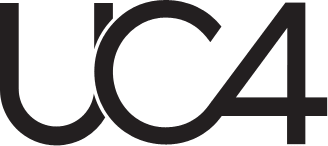6 Myths Of Content Marketing
Like all aspects of digital marketing, content marketing has changed over time and will continue to do so in the future. However, lots of site owners fail to adapt to these changes for one reason or another – quite often because they don’t educate themselves on important changes.
Here we’ve put together a list of six common content marketing myths so that you can see where you’ve been going wrong, and how you can improve your website’s marketing strategy.
Having More Links Is More Beneficial Than Having More Content
According to a Searchmetrics study, back links are one of the top 5 important ranking factors. However, this doesn’t mean that having more links is more important than content.
In May 2013, Google launched Penguin 2.0, an algorithm that penalised sites for low-quality/spammy back links. This update meant that site owners should focus more on link quality than quantity.
Due to the update, it’s more beneficial to invest in high quality content that can be distributed as site content, blogs and guest posts. If these content pieces are valuable, they will theoretically (and likely) be shared, generating natural high quality back links.
Meta Descriptions Are Vitally Important For Rankings
Back in 2009, Google announced that meta descriptions have no impact on search rankings. You’d be surprised how many SEO’s and site owners missed this news and still, 8 years on, spend time stuffing keywords into their meta descriptions.
There’s no need, they have no ranking value. This isn’t to say you shouldn’t put effort into your Meta descriptions though. Well written, useful and informative descriptions play a big part in increasing clickthrough rates.
Focus on drawing in users with your Meta descriptions rather than optimising them for search.
Keywords Must Be Exact Matches And They’re The Crucial Key To SEO
There’s a lot of confusion around the importance of keywords and the way they work.
Since the launch of Google’s machine learning algorithm ‘RankBrain’ in 2015, Google has been able to find keyword terms that are related to each other. RankBrain is able to ‘understand’ what keywords mean, and when a user types in a search query, the robot point users in the direction of pages with high quality content and similar, but not always exact, keyword terms.
The introduction of RankBrain meant that site owners can rank highly for creating content that’s great for the user rather than just space filling content crammed with unnatural out of place keywords.
The h1 Tag Is The Most Important On-Page Feature
A few years ago, virtually every site owner and content marketer believed that the H1 tag was the most important on-page element, and it had to be situated right at the top of the page and include your primary keyword. To a degree they were correct.
Nowadays, many marketers and site owners still think the same – this is wrong. Design is a much larger and more prominent focus than it was a few years back and search engines have progressed to understand that header tags are more commonly used for styling nowadays. They’re able to search through the entire page in order to find the relevant keyword terms and information to return results for searchers rather than just analysing your h1 tag.
So while it’s still preferred - it doesn’t really matter if your h1 includes a primary keyword – just make it sound natural, relevant and enticing for users and make sure you have informative quality content somewhere high on the page so crawlers can find it, else your rankings might be affected.
The Homepage Of Your Site Requires Lots Of Content
Homepages don’t need to be crammed full of content, it won’t benefit your rankings and it’ll make no positive changes to the SEO value of your site. This isn’t to say you don’t need any content.
If anything, a massive homepage content piece crammed full of keywords will damage your rankings rather than boost them, and it’ll cause users to bounce from your site immediately.
The best way to go about creating a high performing home page is to create high quality content that’s relevant and valuable to readers, and straightforwardly tells them exactly what your site is about. Include a few keywords naturally if and where you can but don’t cram them in, and don’t drag the content out to be longer than it needs.
User Experience Isn’t That Important, It’s Just A Bonus
Back in the days of spammy SEO techniques where cramming content full of keywords and generating ridiculous amounts of random back links got you to top position in search engines, users were sent to these high ranking pages despite the possibility of users having a terrible experience on-site.
As search engines have progressed they’ve learnt to analyse content and demote the rankings of spammy/low quality content, so sites that provide a bad user experience aren’t going to rank highly anymore. With the way Google’s new clever algorithms work site owners should focus on filling their sites with good content and make sure that the user experience is good, rather than stuffing them with keywords and links just to rank higher.
No matter how highly you ranked, a site providing a bad user experience is not at all likely to see conversions occur anyhow, rendering all of the technical work useless.
Need High Quality Content For Your Site?
Do you need high quality, well optimised content that adheres to Google’s guidelines for your site? UC4 is a Birmingham SEO company with on-board specialists that can provide just that.
Learn more about our SEO & content marketing services or contact us today for the answers to your queries.
6 Myths Of Content Marketing
Latest posts:
Address
UC4
The Priory
Canwell
Sutton Coldfield
West Midlands
B75 5SH
Contact
- e - [email protected]
- t - 0121 323 3636
Registered in England & Wales no. 3795882
VAT no. 785335108
